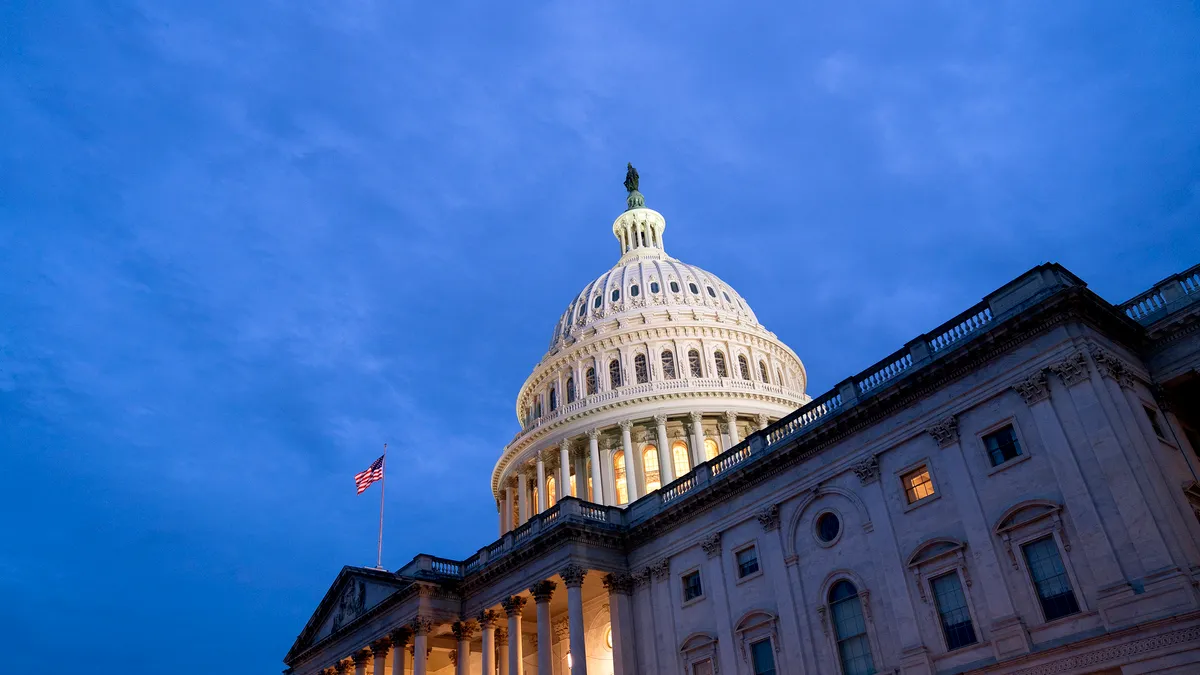Dive Brief:
- The Bank Policy Institute (BPI) wants Congress to ease restrictions on hiring people with criminal histories, the bank trade group told Bloomberg on Friday.
- The group, which represents some of the largest financial institutions in the U.S., such as JPMorgan Chase, Bank of America and Wells Fargo, wants Congress to clarify which people and jobs are covered under Section 19 of the Federal Deposit Insurance Act. Individuals with criminal records involving dishonesty, breach of trust or money laundering must receive approval from the Federal Deposit Insurance Corp. (FDIC) to work at an insured depository institution, according to the law, established in 1829.
- The group also proposes excluding people with misdemeanors and shortening Section 19 application processing times, Bloomberg reported.
Dive Insight:
Congress has made several adjustments to the Federal Deposit Insurance Act since its creation, including easing restrictions for those with minor offenses or for those who were convicted before age 21, but bank industry advocates said more needs to be done.
"There’s only so far that a regulator can go without going outside the bounds of their authority under the statute," Dafina Stewart, BPI’s senior vice president and associate general counsel, told Bloomberg. "We’re asking for Congress to revisit the statute because there are still adjustments to be made."
A bipartisan bill aimed at loosening restrictions for ex-offenders seeking employment at banks was introduced last year by Sens. Thom Tillis, R-NC, and Joe Manchin, D-WV.
Under the Fair Hiring in Banking Act, a bank would not need prior written consent from the FDIC to hire an individual convicted of a criminal offense under the following conditions:
- the person served a seven-year waiting period.
- the individual committed the offense while under the age of 21.
- the conviction was pardoned, sealed or expunged.
Some banks, such as JPMorgan Chase, have introduced internal policies aimed at helping former offenders land jobs at the bank.
The nation’s largest bank announced in 2018 that it removed all questions about criminal backgrounds from job applications and says it only runs a background check after an offer is made. In 2019, it established a policy center to reduce barriers to re-employment for people with criminal pasts.
JPMorgan Chase said about 10% of its new U.S. hires in 2020 — more than 2,100 people — had arrest records, a figure that has held steady since about 2018.
CEO Jamie Dimon has maintained that companies’ reluctance to hire people with criminal backgrounds represents a missed opportunity for the economy as a whole. The U.S. loses between $78 billion and $87 billion in annual gross domestic product by excluding people with criminal records from entering the workforce, JPMorgan research found in 2019.
"There is a really huge demand for talent in every industry in every labor market, and this is a talented set of individuals who can and should be able to contribute in this labor market," Michelle Kuranty, JPMorgan’s executive director of talent acquisition sourcing, told Bloomberg.














